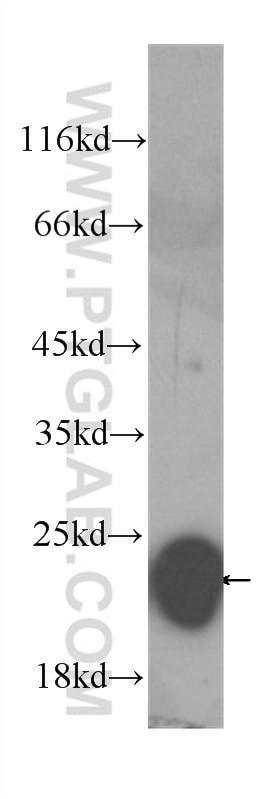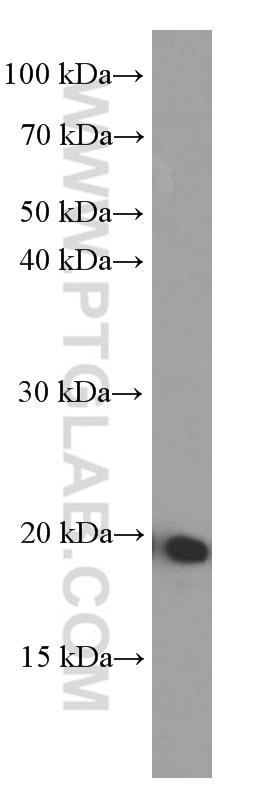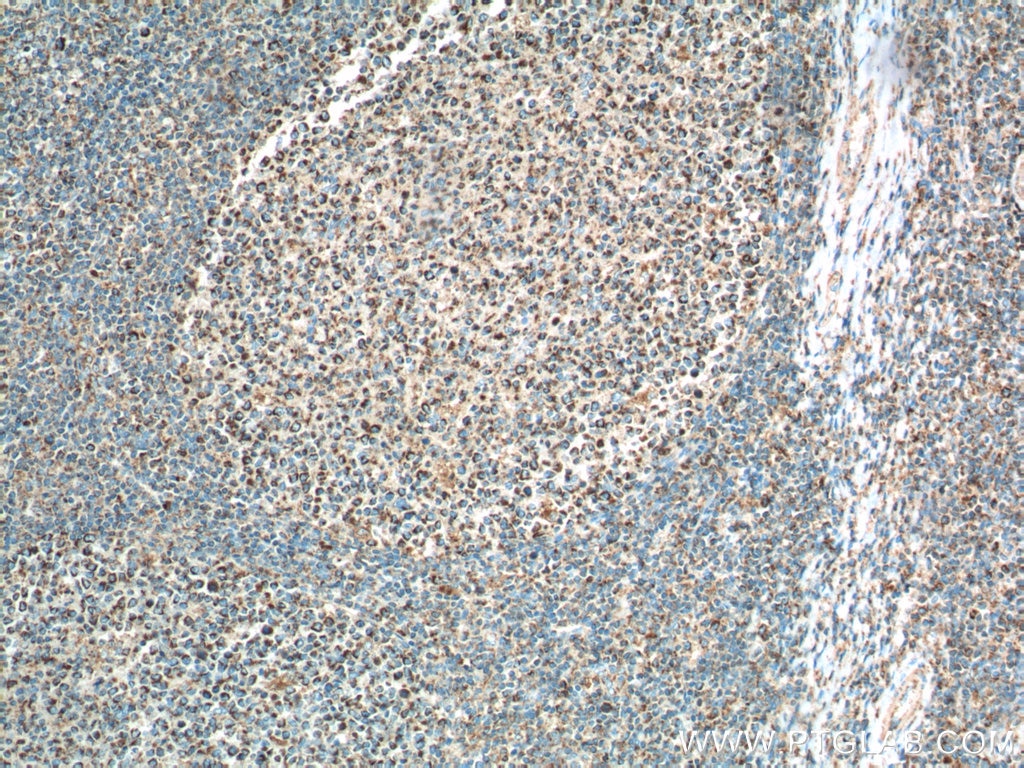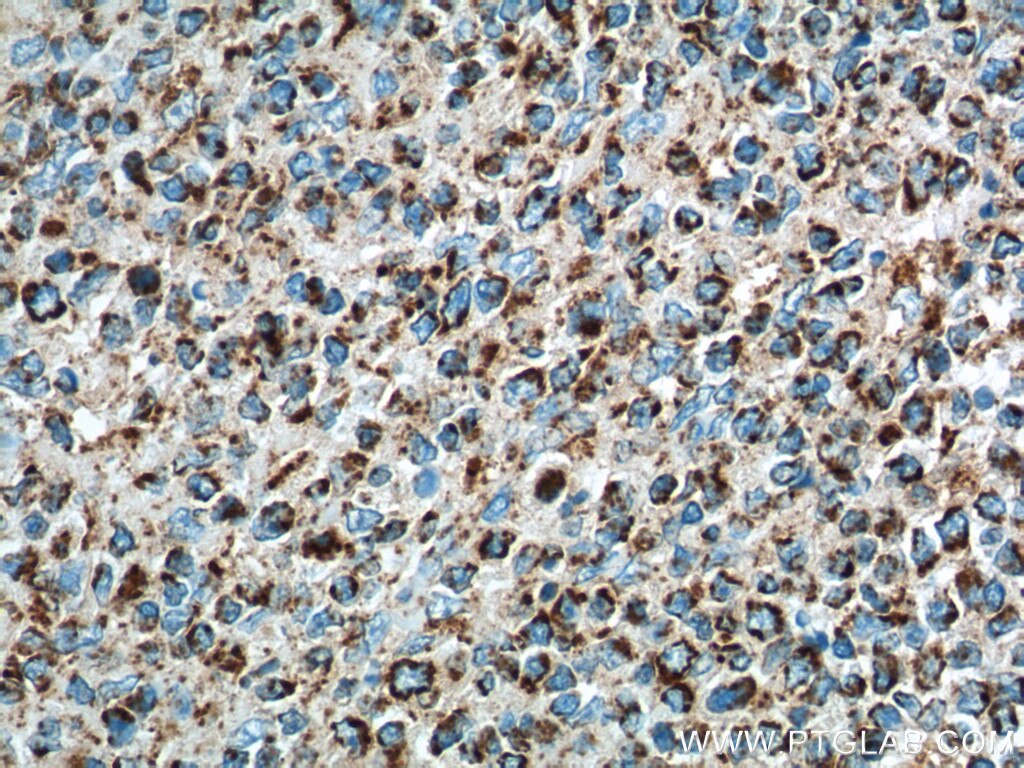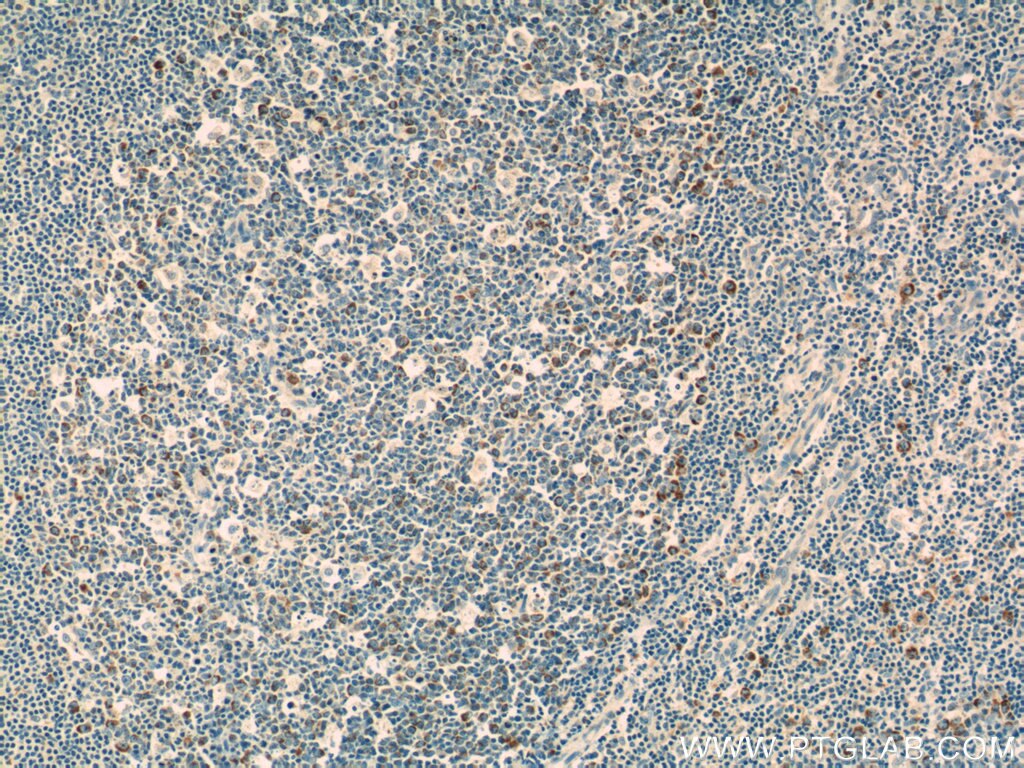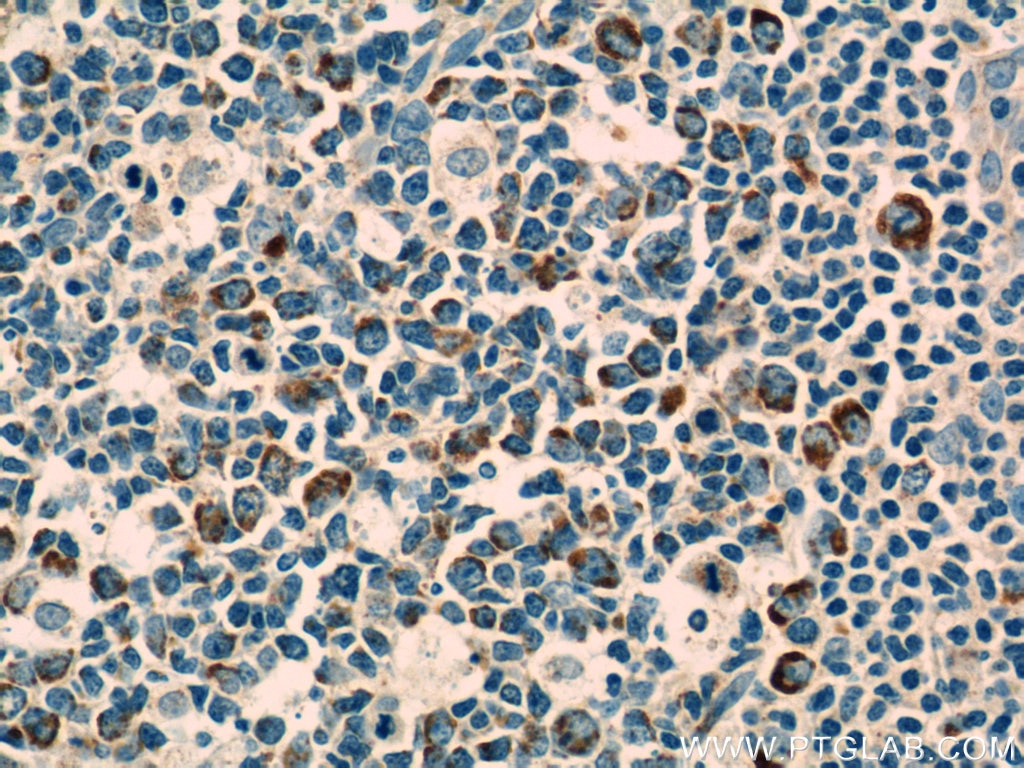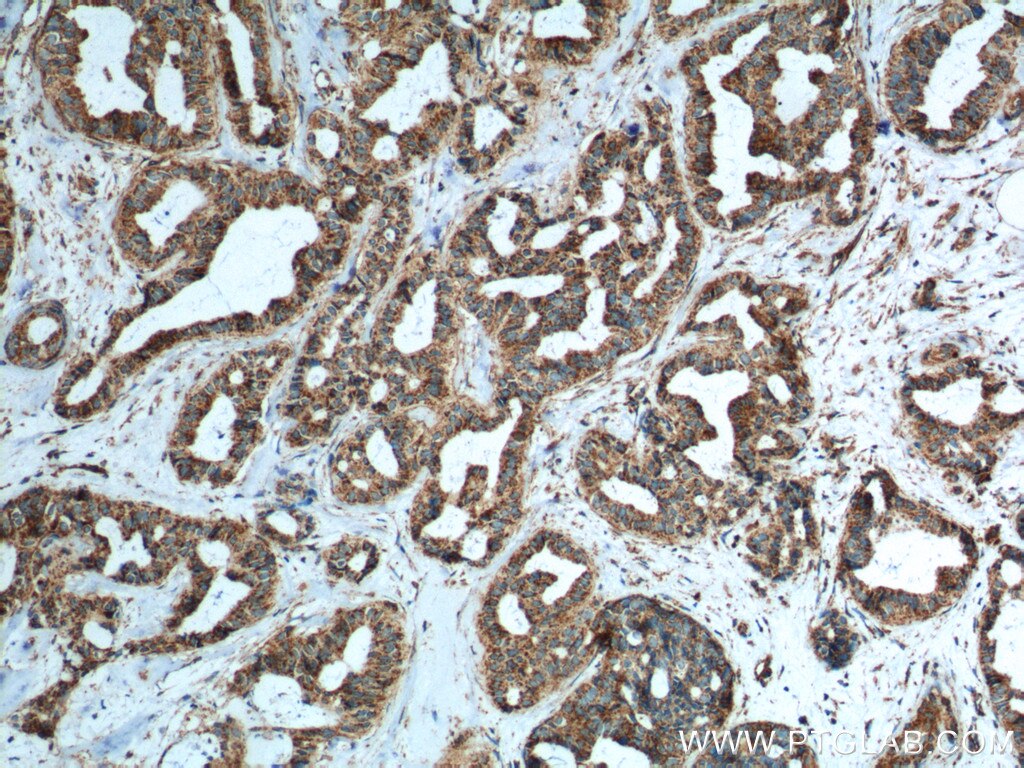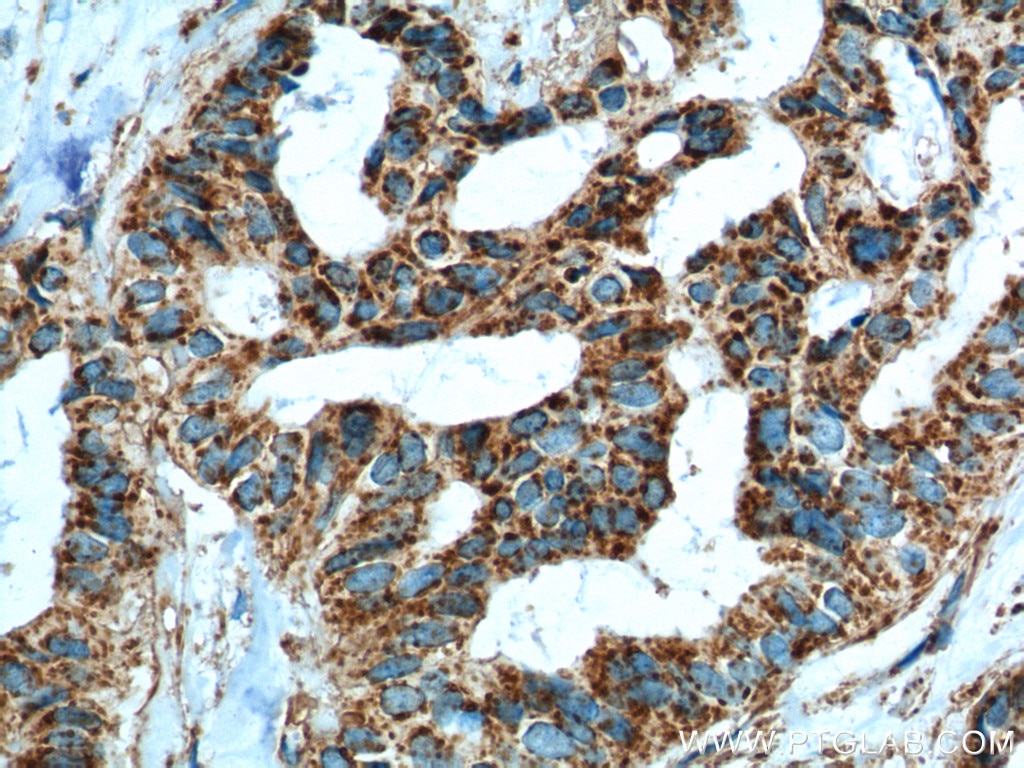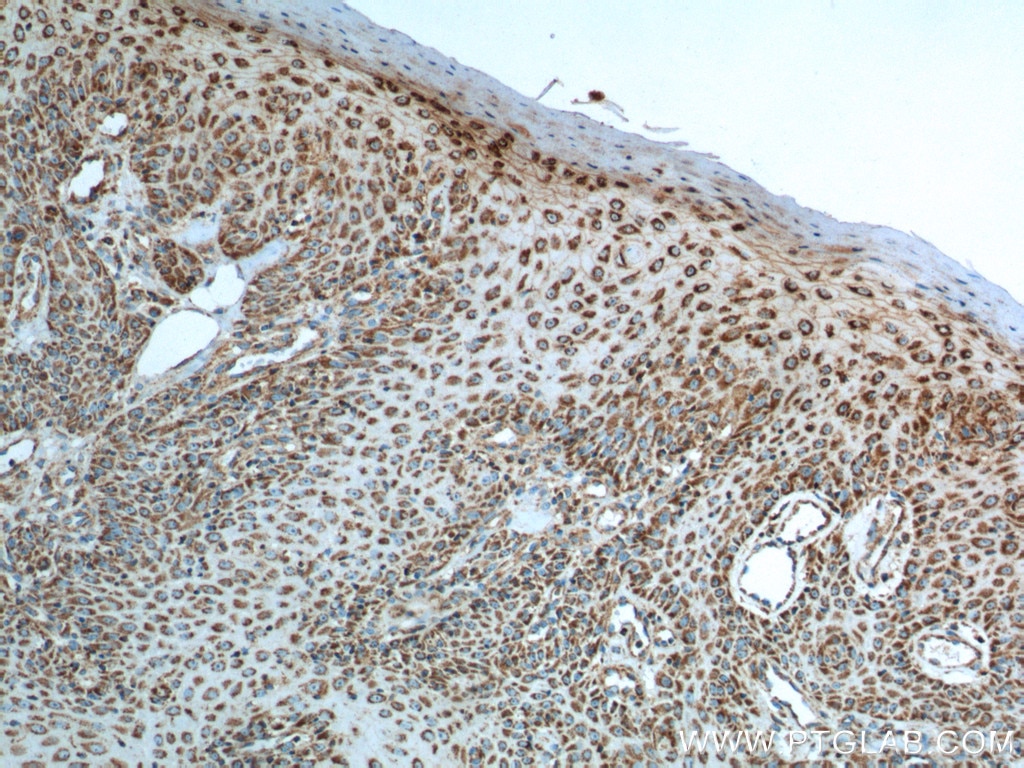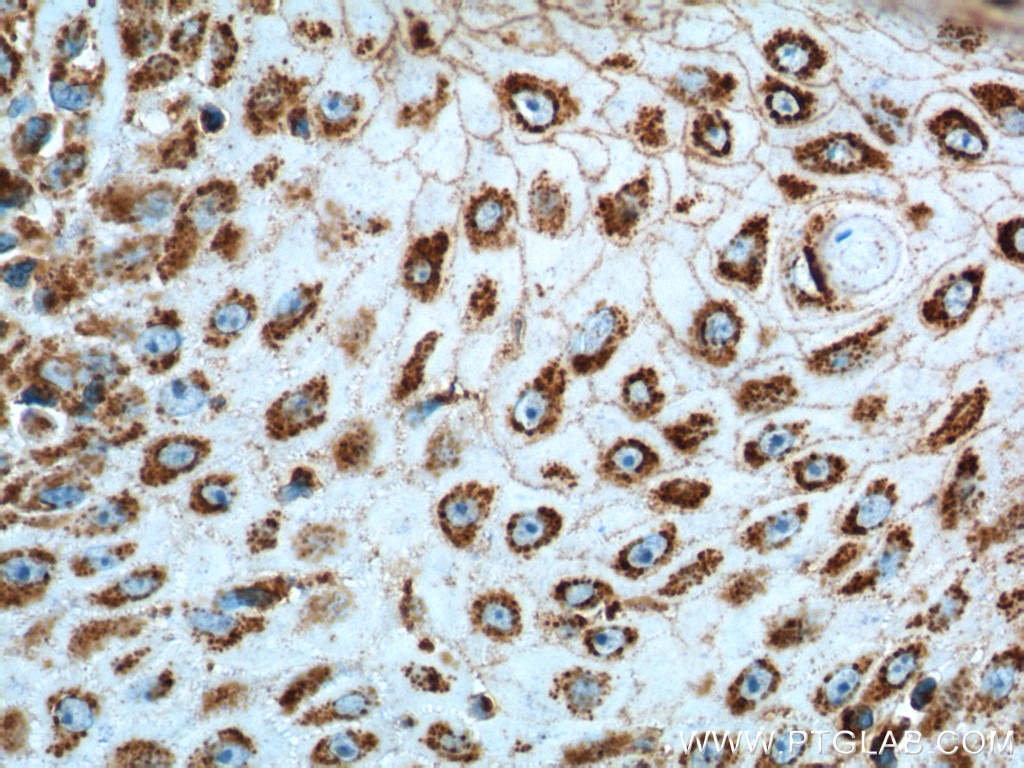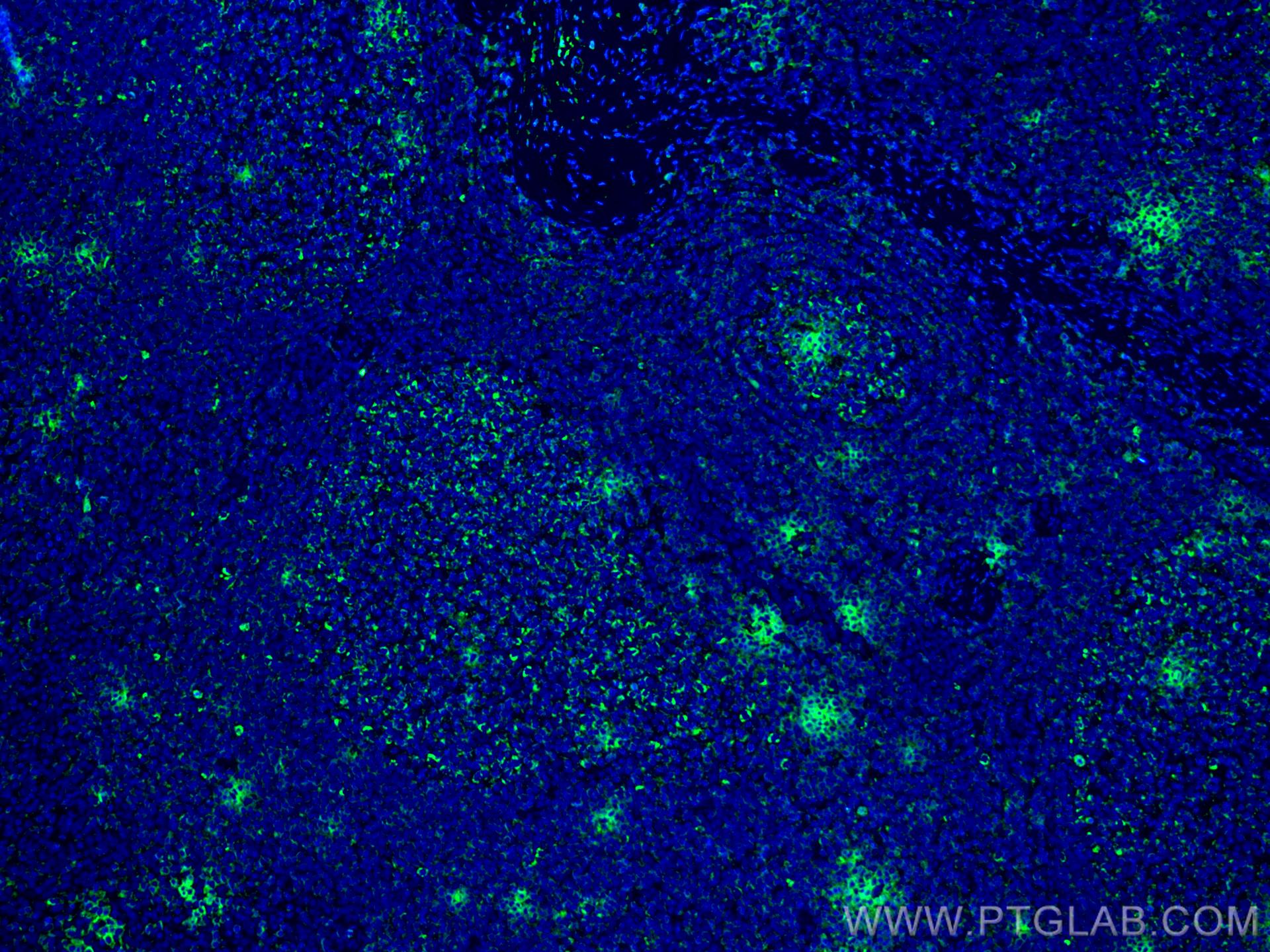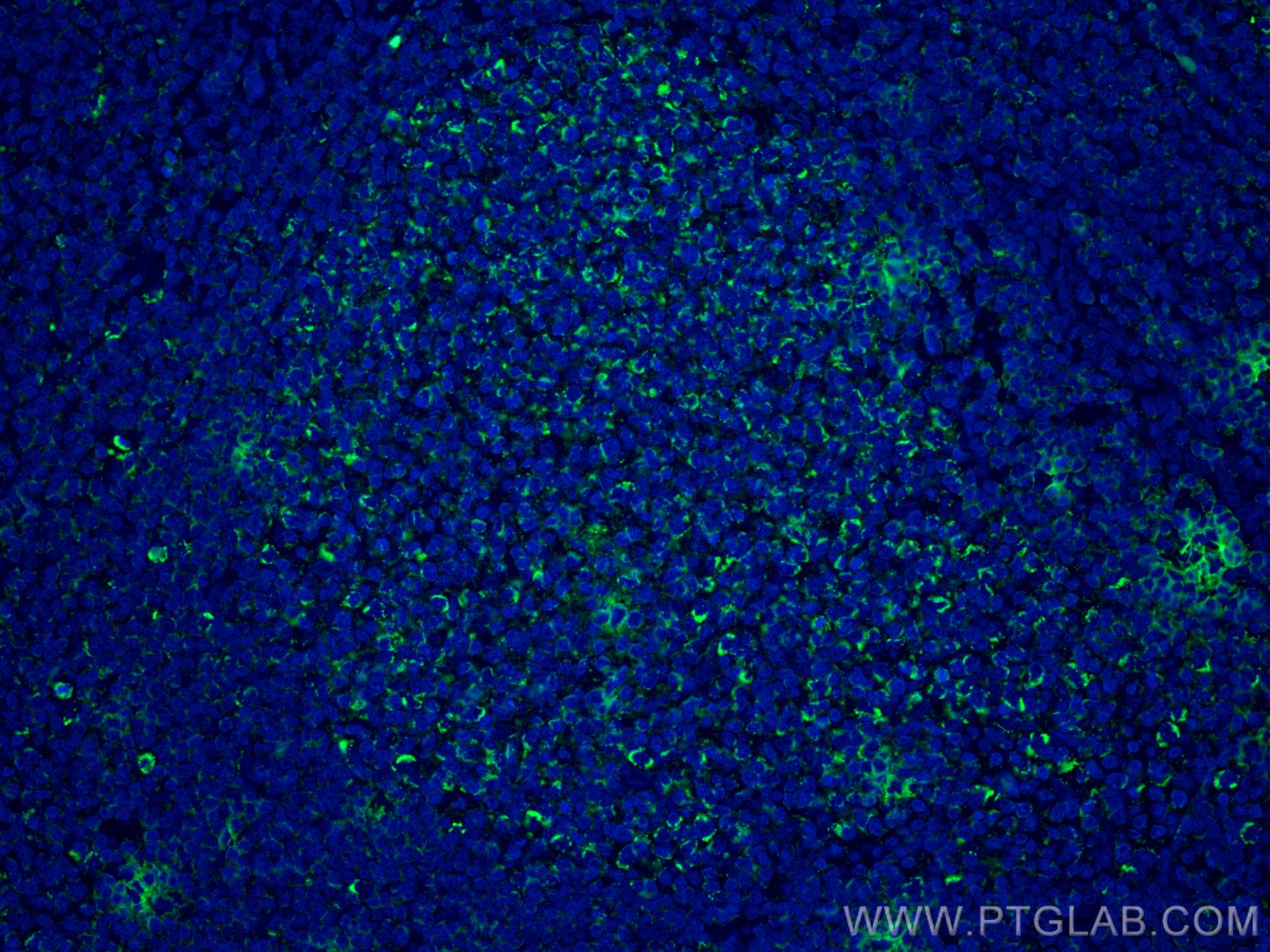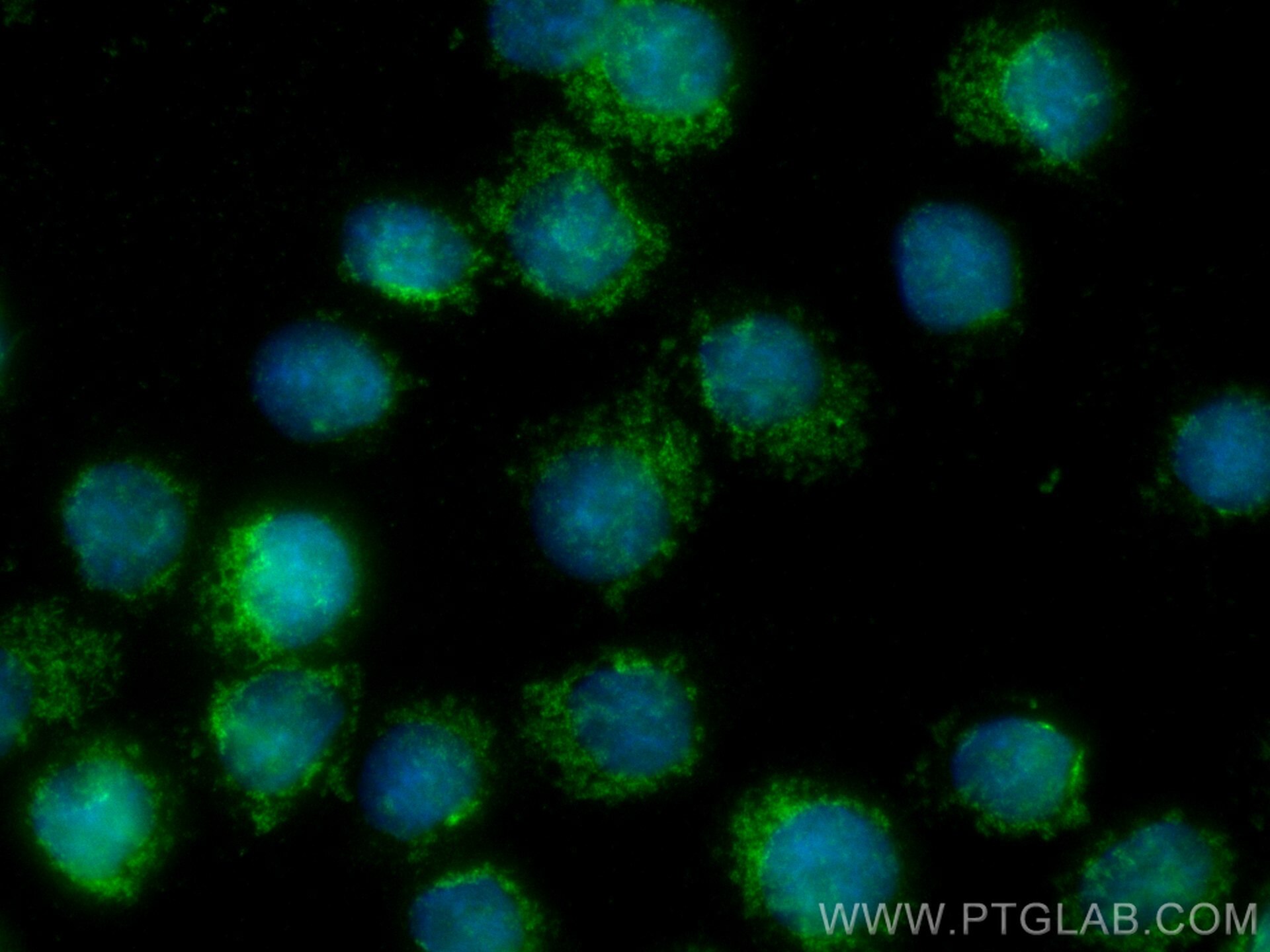Anticorps Monoclonal anti-IL-19
IL-19 Monoclonal Antibody for IHC, IF/ICC, IF-P, Indirect ELISA
Hôte / Isotype
Mouse / IgG1
Réactivité testée
Humain
Applications
IHC, IF/ICC, IF-P, Indirect ELISA
Conjugaison
Non conjugué
CloneNo.
8H10H8
N° de cat : 60278-1-PBS
Synonymes
Galerie de données de validation
Informations sur le produit
60278-1-PBS cible IL-19 dans les applications de IHC, IF/ICC, IF-P, Indirect ELISA et montre une réactivité avec des échantillons Humain
| Réactivité | Humain |
| Hôte / Isotype | Mouse / IgG1 |
| Clonalité | Monoclonal |
| Type | Anticorps |
| Immunogène | IL-19 Protéine recombinante Ag18887 |
| Nom complet | interleukin 19 |
| Masse moléculaire calculée | 177 aa, 20 kDa |
| Numéro d’acquisition GenBank | BC153127 |
| Symbole du gène | IL-19 |
| Identification du gène (NCBI) | 29949 |
| Conjugaison | Non conjugué |
| Forme | Liquide |
| Méthode de purification | Purification par protéine G |
| Tampon de stockage | PBS only |
| Conditions de stockage | Store at -80°C. 20ul contiennent 0,1% de BSA. |
Informations générales
IL-19, a member of the IL-10 cytokine family, is expressed in epithelial cells, endothelial cells, and macrophages. It can bind the interleukin-20 receptor complex IL-20R1/IL-20R2 and lead to the activation of the signal transducer and activator of transcription 3 (STAT3). IL-19 induces IL-6 and TNF-alpha production in monocytes. It also induces cell apoptosis and reactive oxygen species production in monocytes, which suggests a role of this cytokine in inflammatory responses. It is up-regulated in monocytes following stimulation with lipopolysaccharide (LPS), and granulocyte-macrophage colony-stimulating factor (GM-CSF). IL-19 alters the balance of Th1 and Th2 cells in favor of Th2 cells. IL-19 contributes to a range of diseases and disorders, such as breast cancer, squamous cell carcinoma of the skin, asthma, endotoxic shock, uremia, psoriasis, rheumatoid arthritis, and periodontal and vascular disease.
